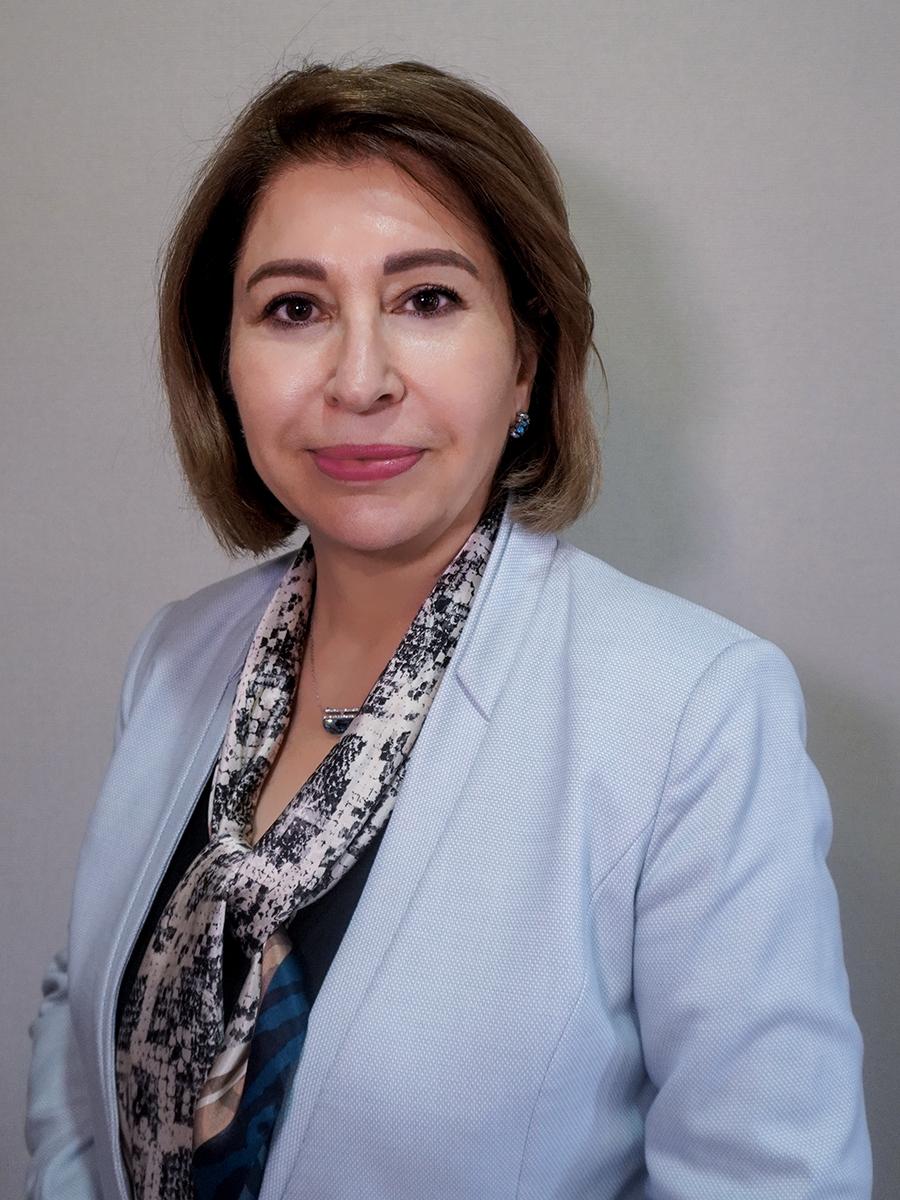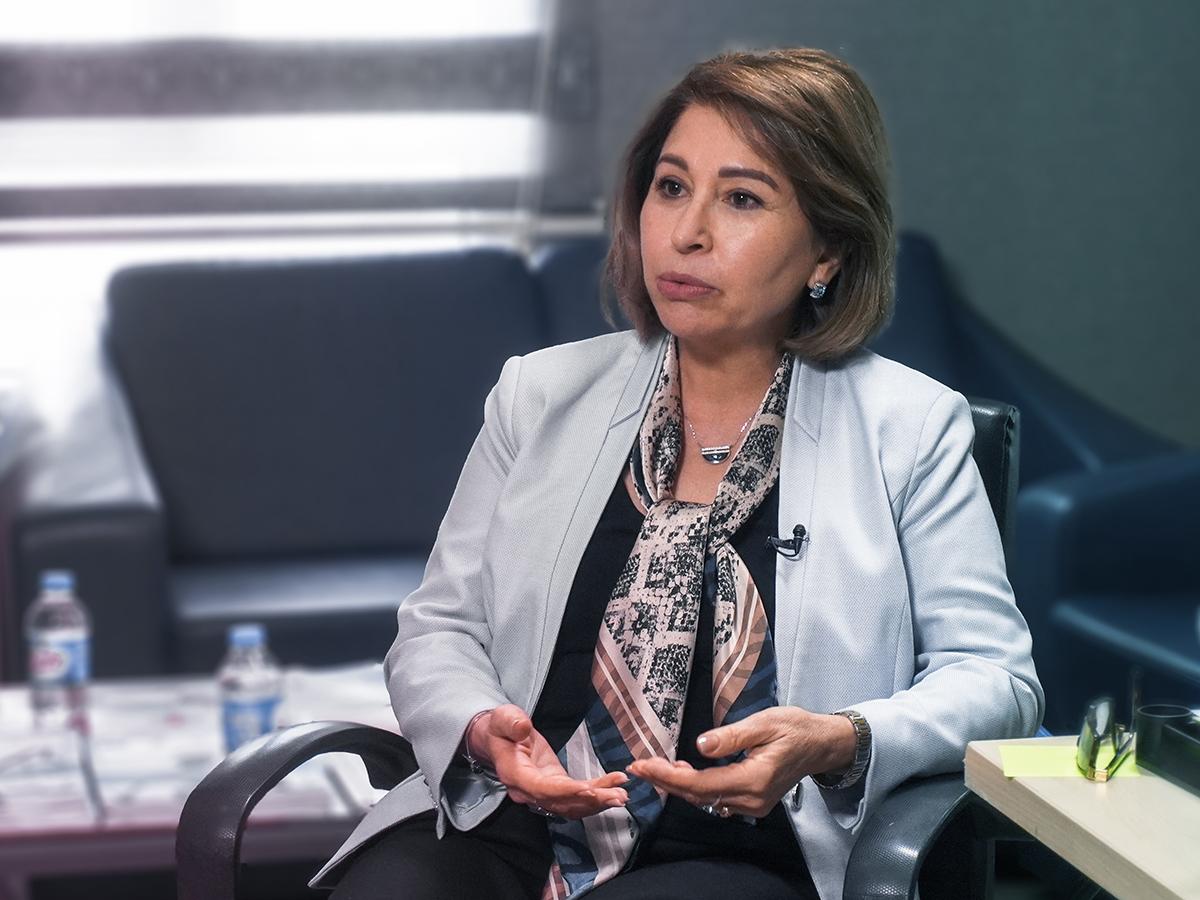The UN Security Council unanimously adopted this landmark resolution on 31 October 2000. It calls on all UN members and generally all conflict parties to involve women equally in peace processes and to adopt a gender perspective in peacekeeping and security operations.

Prioritising peace
Suzan Aref has dedicated her life to protecting and supporting women in Iraq. We turn the spotlight on her life and work.
After the endorsement of Iraq’s first National Action Plan in April 2014, Suzan Aref felt hopeful. As the first country in the MENA region to develop a plan of action for UN Resolution 1325, Iraq had set an important precedent, prioritising the equal participation of women in peacebuilding and committing to protect them in times of conflict. This was what the human rights activist had spent the last three years working towards, convinced that here was a mechanism to make lawmakers listen.
‘The resolution is a strong tool. As women’s rights activists our voice is often unheard at national level, but this gives us influence and access internationally,’ says Aref, who coordinated the Women Peace Network of civil society organisations, which played a pioneering role in the process.

Women’s rights in Iraq
Born in Erbil in 1961, Aref gained a bachelor’s degree in banking and financial studies and a management diploma before going on to found the Women Empowerment Organization and the DASPEC Centre for Female Entrepreneurs in Erbil. She has seen a steady decline in women’s rights since her youth, when Iraqi women and girls enjoyed far greater freedoms than they do today. ‘Before the Gulf War, women were more independent, with equal rights in education, health, employment and other areas,’ she says. But a series of violent conflicts have eroded these freedoms, forcing Iraqi women into an increasingly restrictive space.
Resolution 1325 and its consequences
Until 2011, Aref had never heard of UN Security Council Resolution 1325 on women, peace and security. But when an invitation from the UN Assistance Mission for Iraq (UNAMI) asked her to attend a ceremony celebrating the anniversary of 1325, she was surprised. ‘I asked why we were celebrating a piece of paper. After 11 years, what has the resolution done? How has it responded to women’s needs?’ The reply surprised her still further. ‘They said here is the resolution, now it’s your role to translate it into a plan with policies for your country. So that is what I did,’ recalls Aref, who has spent her career working to improve the situation for women and girls in Iraq.
An instrument to promote fair participation in Iraq
For Aref, Resolution 1325 presented an opportunity to formally reclaim the rights Iraqi women had lost. ‘The resolution changed how the UN dealt with women’s issues. Before women were seen as victims of conflict, but now they are treated as peacebuilding actors,’ explains Aref. So she gathered representatives from 10 women’s rights organisations to collaborate on Iraq’s first National Action Plan. ‘For a long time we couldn’t get the government to listen, but the resolution matched our demands by calling for meaningful participation of women at all levels. At last we had a tool we could depend on to create the political will for addressing the needs of women and girls in Iraq,’ she says.
The team grew into a task force with representatives from different sectors, all dedicated to implementing the resolution’s goals. ‘We built trust between government and civil society and put women, peace and security at the top of the agenda,’ Aref recalls. ‘It was a very difficult period in Iraq. So it was a major achievement to generate the political will among such diverse actors to work together in such a divided country,’ she adds.
The second National Action Plan
Unfortunately, it didn’t last. Even as they signed the plan in April 2014, ISIS was expanding across Iraq, and a few months later its then-leader, Abu Bakr al-Baghdadi, declared the creation of an Islamic State. National attention shifted to the crisis, and women dropped down the agenda. ‘Political will is very fragile, it’s there for one year, then something happens and it’s not there anymore,’ Aref says.
After the defeat of ISIS in 2017, subsequent challenges, including COVID-19, the economic crisis and the war in Ukraine, kept female participation out of the spotlight. The National Action Plan was relegated to a box-ticking exercise for a new government less invested in meaningful change, says Aref, who feels the new plan falls short of the first.
Serious setbacks for women’s rights
Aref points to a failure to involve civil society in the development of Iraq’s second National Action Plan, which replaced the first in 2019. She declined to be involved, saying the process was symptomatic of the shrinking space for civil society in Iraq, where women’s rights have suffered a particular backlash in the past decade. ‘You can feel the marginalisation as a woman in Iraq. It makes me angry. They don’t pay attention to what women suffer because women are no longer part of the decision-making process,’ says Aref. ‘We need a strong civil society and strong institutions to advocate for female participation.’
That’s why she will continue to work to implement Resolution 1325. Because only when women participate equally in society will their rights be protected against political upheavals and changing priorities. ‘Without equal participation there can be no peace and no security. So the benefit is not only for women, but for society as a whole.’
